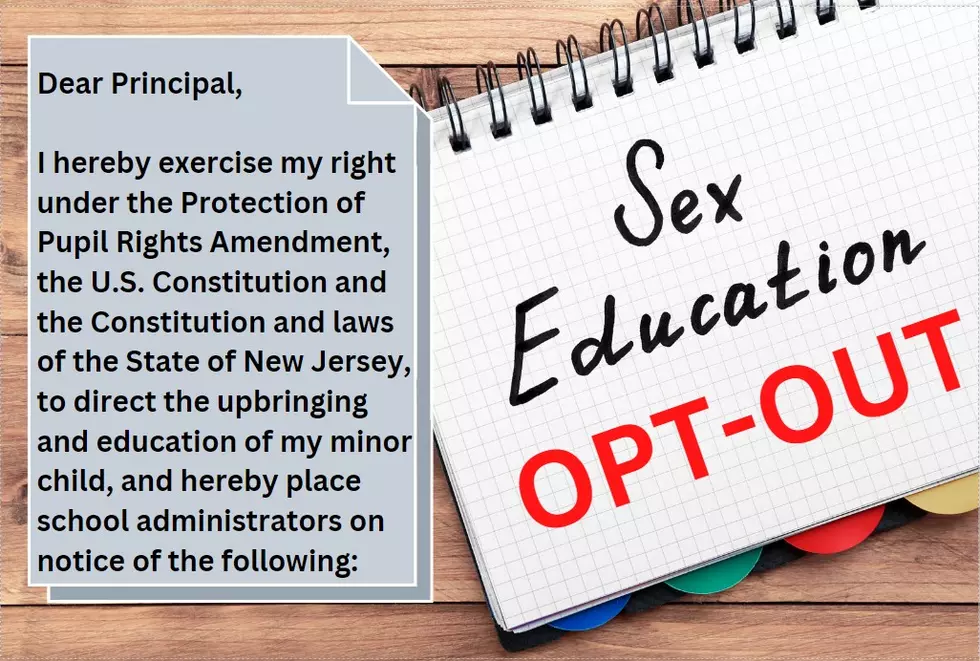
Clash over NJ sex education standards overshadows budget hearing
TRENTON – The controversy over sex education standards for New Jersey public schools seeped into Thursday’s budget hearing, where a Republican state senator pressed the Department of Education to more thoroughly scrub its website for links to potentially age-inappropriate lessons.
Acting Education Commissioner Angelica Allen-McMillan said the issue is being weaponized and distorted by critics to make it appear the state is behind ideas from outside groups it hasn’t endorsed. And she said parents who object retain their longtime option to opt their kids out of certain lessons.
Sen. Michael Testa, R-Cumberland, said that despite the state’s protestations that the lessons are determined by local districts, the NJDOE provides dozens of links and resources for schools to consider using in developing their curriculum.
“It’s my understanding that some of the videos we’re talking about are actually linked directly on your site,” Testa said.
Allen-McMillan said the links on the website have been vetted and reviewed and that none connect to “the material that has been deemed salacious.”
“The material that was cited in the public is not on the Department of Education’s website,” Allen-McMillan said. “It is not included in our materials.”
Testa says the state DOE website links to a group called Rutgers Answer, which in conjunction with Advocates for Youth makes and links to the videos in question. Allen-McMillan indicated it would be reviewed.
'Weaponizing of third-party information'
Allen-McMillan said the standards are designed to be responsive and respectful. She said in the youngest grades, it’s an important opportunity to shatter stereotypes and gender norms, such as all girls should take art and all boys are good at math. And she said they can help LGBTQIA students “who do not necessarily feel that they have a safe place to learn and feel as though they belong.”
“This is an opportunity for our school district leaders who – again, I know many of them personally – have the experience and the expertise to navigate this without the weaponizing of third-party information being put upon the state as if it is our message, and it is not,” she said.
Allen-McMillan repeatedly emphasized that parents can “opt out of content related to sex education that conflicts with their moral or religious beliefs. That has been the standard in New Jersey I believe since the ‘80s.”
Testa said an opt-out isn’t enough.
“People are very busy in this state. They don’t necessarily have the time to review materials of which they may want to opt out,” he said. “Maybe, and this is a suggestion, maybe we should have an opt-in clause, to see if parents actually want to opt into it.”
Allen-McMillan said that if parents are too busy for the opt-out process, the same may hold true for an opt-in approach.
Prurient material, not dissection
She likened the matter to the way some parents opt their students out of dissection lessons in biology class. Testa said the current debate isn’t comparable to that.
“This is about an 8-year-old being taught about what many people would call prurient material, showing an 8-year-old where the clitoris is,” Testa said.
Allen-McMillan said particular body parts aren’t mentioned in the state literature at that grade level, though she said research shows it is critical to teach prepubescent children the proper terms for the body’s anatomy. Testa asked if would be appropriate for a neighbor to discuss that with a child.
“I’m an educational expert. I’m not an expert in neighbors,” Allen-McMillan said. “I’m unable to speak to that.”
“Some of the materials that are contained in these standards that were created by so-called experts may subject that neighbor to potential liability under Megan’s Law,” Testa said.
Diversity and inclusion mandate
In dismissing the helpfulness of the opt-out approach Allen-McMillan cited, Testa went beyond questions about sex education to criticize a requirement that districts incorporate diversity and inclusion throughout their curriculum in grades K through 12.
“That law specifically states that the instruction shall highlight and promote diversity, including economic diversity, equity, inclusion, tolerance and belonging in connection with gender and sexual orientation, race and ethnicity, disabilities and religious tolerance,” Testa said.
“This curriculum is mandated for grades kindergarten through 12, and no opt-out provision exists,” he said. “Unfortunately for concerned parents, an opt-out provision would not be feasible since the law directs these sensitive items be incorporated throughout the curriculum.”
“The diversity, equity and inclusion legislation is designed to supplement and capitalize on opportunities to talk about our state,” Allen-McMillan said. “Our state is the most diverse in the nation. It’s a wonderful opportunity to highlight the ranges of experience that New Jerseyans have.”
“Madam Commissioner, I’m not talking about specifically diversity,” Testa said.

Sen. Paul Sarlo, D-Bergen, allowed Testa wide latitude to pursue the questions about sex education though said the hearing was supposed to be about Department of Education spending plans for fiscal 2023. He said he had heard concerns from parents and agrees he wouldn’t want young kids to hear about some of those subjects from a teacher.
“There are some bad actors out there. There are some teachers out there who have done some things they probably should not have done,” Sarlo said. “There’s some conspiracy theorists out there as well who are making this a lot more than it is.”
Michael Symons is the Statehouse bureau chief for New Jersey 101.5. You can reach him at michael.symons@townsquaremedia.com
Click here to contact an editor about feedback or a correction for this story.
Netflix’s Most Popular TV Shows Ever
These are the best hiking spots in New Jersey
More From New Jersey 101.5 FM









